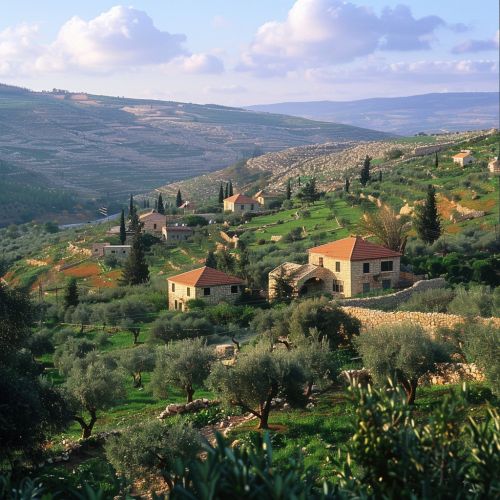Palestinians
Overview
The Palestinians are an ethnic group predominantly inhabiting the region of Palestine, which is currently divided into the State of Palestine, Israel, and the Hashemite Kingdom of Jordan. The Palestinians are composed of several sub-groups, including the Muslims, Christians, Druze, and Samaritans, each with their own unique cultural characteristics and historical experiences.


History
The history of the Palestinians is intertwined with the history of the wider region of Palestine and the Levant. The earliest known mention of a people called Palestinians is in the Ancient Egyptian texts, dating back to the Bronze Age. However, the modern Palestinians are primarily descended from the Arab Muslim conquerors who entered the region in the 7th century AD during the Islamic conquests.
Ancient Period
The region of Palestine has been inhabited since prehistoric times, with evidence of human settlement dating back to the Paleolithic era. The Canaanites, an ancient Semitic-speaking people, are considered to be the earliest known inhabitants of the region.
Islamic Conquest and Arabization
The Islamic conquest of Palestine in the 7th century brought significant changes to the region. The Arab Muslim conquerors introduced the Arabic language and Islam, which gradually became the dominant religion and language of the region.
Ottoman Rule
The Ottoman Empire ruled Palestine from 1516 to 1917. During this period, the Palestinians maintained their Arab and Islamic identity, while also being influenced by Ottoman culture and administration.
British Mandate
The British Mandate for Palestine (1920–1948) was a crucial period in Palestinian history. It set the stage for the Israeli–Palestinian conflict, which continues to shape Palestinian society and politics today.
Culture
Palestinian culture is rich and diverse, reflecting the influences of various civilizations that have ruled over the region. It includes elements of Arab, Islamic, Ottoman, and Western cultures.
Language
The Palestinian Arabic dialect is the mother tongue of most Palestinians. It is a variant of Levantine Arabic, with influences from the languages of the various civilizations that have ruled over Palestine.
Cuisine
Palestinian cuisine is a blend of Levantine and Middle Eastern cuisines. It is characterized by the use of fresh vegetables, legumes, and olive oil. Some of the most popular Palestinian dishes include falafel, hummus, and mansaf.
Music and Dance
Traditional Palestinian music is a mix of Arabic music and local folk music. The dabke is a popular folk dance performed at weddings and other celebrations.
Politics
The political situation of the Palestinians is complex and influenced by the ongoing Israeli–Palestinian conflict. The Palestine Liberation Organization (PLO) and Hamas are the two main political factions representing the Palestinians.
Demographics
The Palestinians are one of the largest stateless nations in the world. The majority of Palestinians live in the State of Palestine, Israel, and Jordan, with significant diaspora communities in Lebanon, Syria, and other countries.
